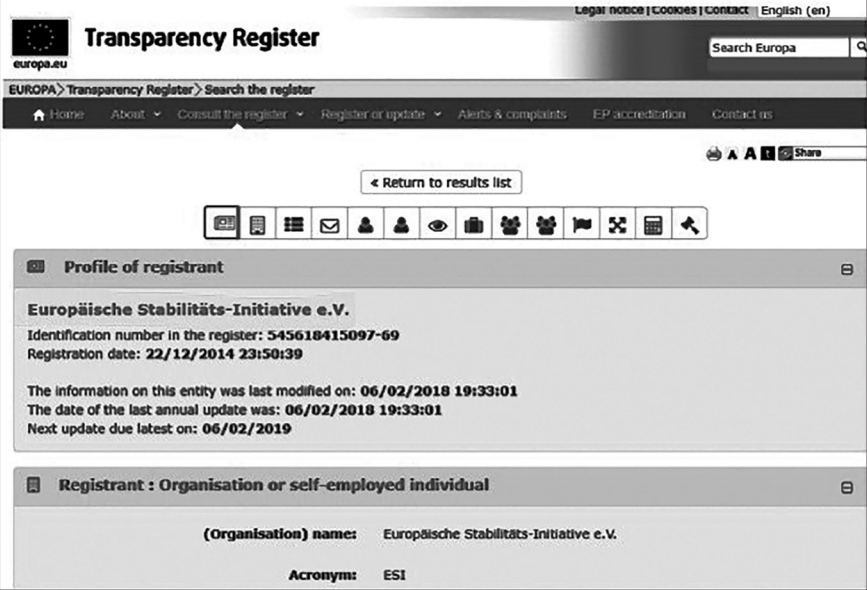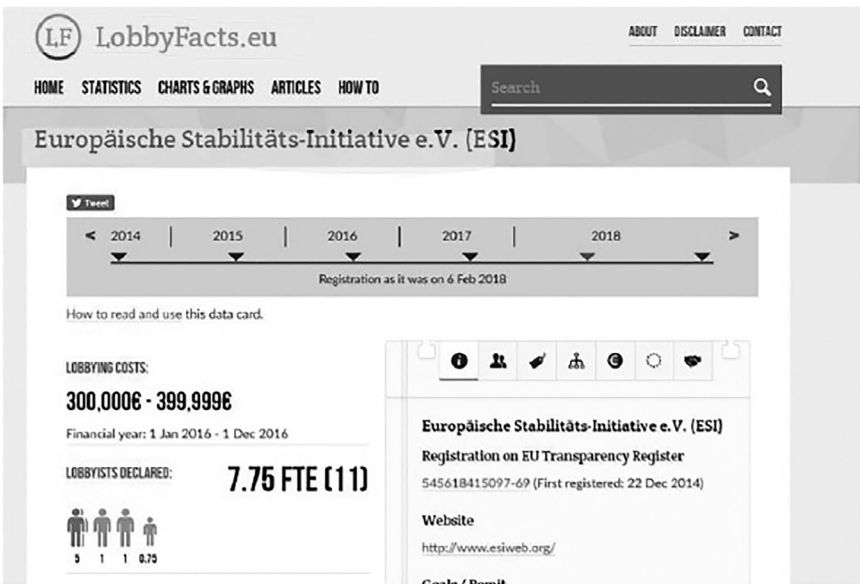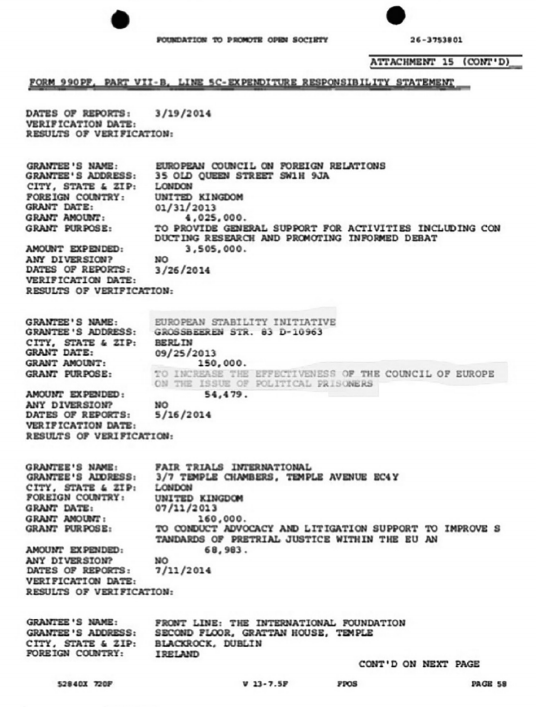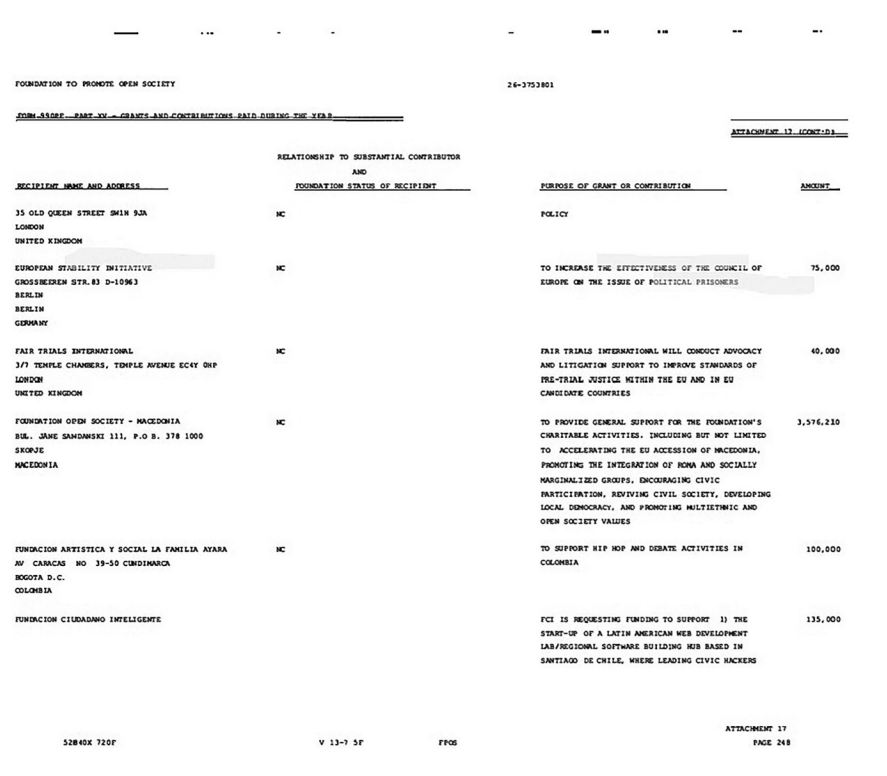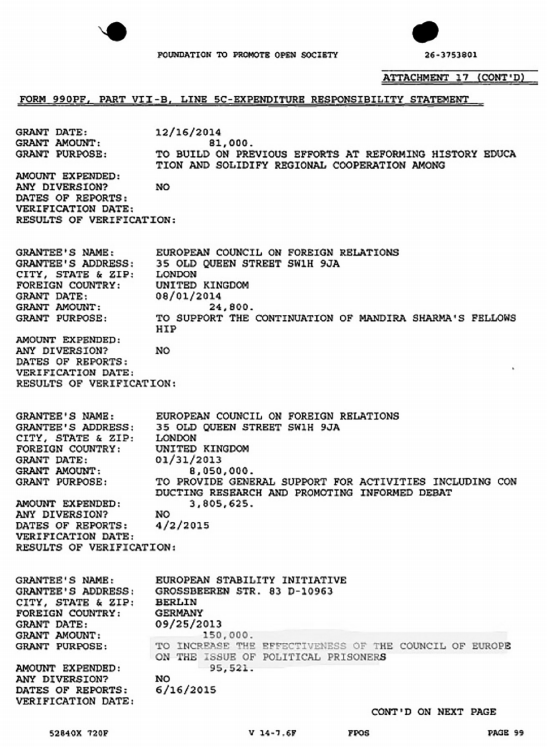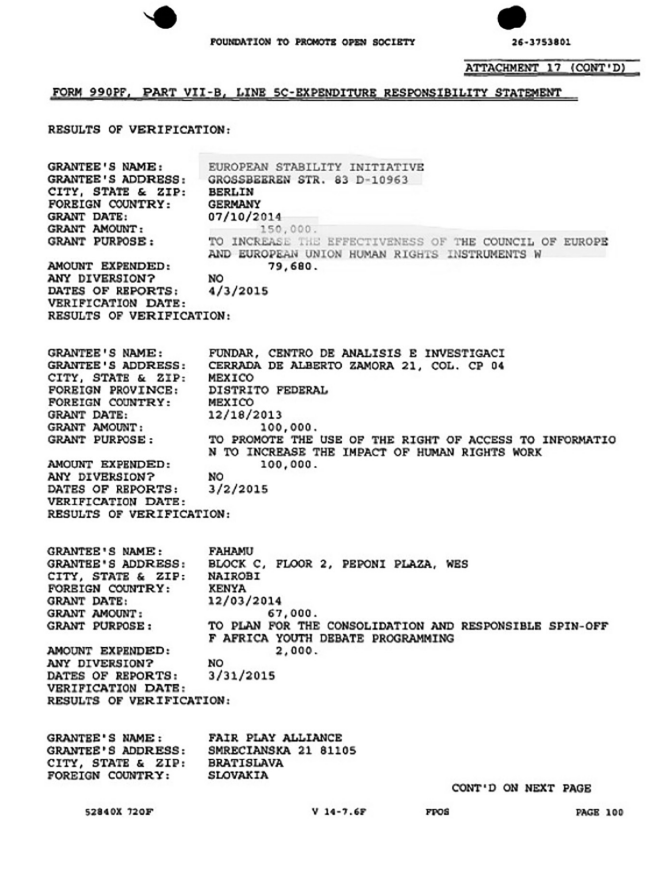The Independent External Investigation Body presented its “Report of the Independent Investigation Body on the allegations of corruption within the Parliamentary Assembly” on 15 April 2018. At the 26 April 2018 meeting, the Assembly adopted the 217-page report that covers the post 2008 period.
We should remind that under the mandate of the Independent External Investigation Body and the terms of reference, the investigation should have probed active and passive corruption activities of incumbent and former members of PACE with involvement of all member states of the Council of Europe.
However, close scrutiny of the report reveals that only one page is about other member states with the rest devoted to Azerbaijan. Thus, while drafting the report, members of the Investigation Body limited their mandate to Azerbaijan and “investigated” the alleged cases of corruption organized directly or indirectly by the state of Azerbaijan. The cases of corruption related to other states are mentioned in the report only as a mere formality and without any investigation into them. Corruption files related to other states are formally referred to in the report without any investigation.
Indeed, in part “B. Scope of the Investigation Body’s review” of the “Introduction”, the authors clearly highlighted that they have limited their mandates to Azerbaijan. Thus, part B starts with contradicting sentences. On the one hand, they wrote “The terms of reference establishing the mandate of the Investigation Body do not identify any particular example of alleged corruption, nor do they name any individual, entity or country alleged to have been involved in corruption or fostering of interests.”
However, in the following sentence, refuting the first one, they immediately mentioned Azerbaijan and said: “Nevertheless, several NGO reports, the substance of which is set out in detail below, openly denounced alleged efforts on the part of Azerbaijan to silence criticism in PACE in exchange for gifts and money, notorious as “caviar diplomacy”, have directed the Investigation Body’s review to such allegations concerning Azerbaijan.” So, the report apparently says that “several NGO reports… have directed the Investigation Body’s review to such allegations related to Azerbaijan”.
Another noteworthy point is explained in part “B. Scope of the Investigation Body’s review” of the “Introduction” section. European Stability Initiative was referred to as a source of allegations against Azerbaijan, and it appears clear that the Investigation Body prepared its report mainly on the basis of the materials prepared by European Stability Initiative and other NGOs, participating in the anti-Azerbaijan alliance from time to time. As we have made sufficient analysis regarding biased and open hostile position of this organization against Azerbaijan, there is no need to analyze the materials they have prepared.
The Investigation Body’s report notes that there is a group of persons working in PACE for the interests of Azerbaijan. However, the Investigation Body “couldn’t establish with a sufficient degree of certainty that they all formed part of a single orchestrated structure”. Thus, the Investigation Body did not find any group working for the interests of Azerbaijan with a single orchestrated structure within the Assembly and claimed without picturing any facts that those members have acted contrary to the Assembly’s ethical standards.
As expected, the Investigation Body, in its report, has paid special attention to the “gifts” presented in connection with the activities related to Azerbaijan. However, as the authors of the report did not find any ground or fact, they acknowledged that it was not possible to establish that “such gifts were given in exchange for the agreement of particular MP or secretariat member to act in a particular way”.
The report focused on the performance of lobbying activities in PACE and the Investigation Body found that a number of former PACE MPs had performed such activities, being contrary to the PACE Code of Conduct.
However, as for corruption in exchange for backing Azerbaijan, the Investigation Body established in its report that “there was a strong suspicion that certain current and former members of PACE had engaged in activities of a corruptive nature”. Thus, as the authors of the report outlines, the Investigation Body investigates the allegations of corruption concerning Azerbaijan on the basis of “strong suspicion”.
Interestingly, the report mentions no specific allegations of corruption, but only expressions, such as “according to the claim of an unidentified source”, “heard that”, “rumors one had heard”. Moreover, the report notes that the report of European Stability Initiative contains allegations that “systematically at each session” caviar was offered “to “key friends” of Azerbaijan in PACE and to other three or four members of the Secretariat”. Secretary General of PACE Sawicki sent a letter to European Stability Initiative, asking for “evidence concerning the allegations of corruption made against the secretariat”. Alas, no reply was received.
However, “in his oral evidence given to the Investigation Body, Knaus explained that ESI source had given some names of people who had been receiving gifts, but ESI had decided not to use those names because it was not sure about the accuracy of the information.” It’s interesting, is not it?!
It is noteworthy that the “strong suspicion”, to which the Investigation Body referred to, included indirect considerations based on rumors. Thus, the Investigation Body does not confirm with any proofs suspicions of corruption against PACE members alleged to collaborate with Azerbaijan.
To justify their suspicions, the Body refers to the media allegations by a number of radical opposition representatives, both in Azerbaijan and abroad, and foreign-based anti-Azerbaijani elements and to their evidence to the Investigation Body.
However, the Investigation Body did not have investigative powers or sufficient willpower to investigate those allegations. Apparently, the allegations of corruption have not been officially confirmed in the report.
One of the sources referred to by the Investigation Body includes reports by European Stability Initiative (ESI), a European-based think tank, one of the authors of the so-called allegations of corruption on Azerbaijan, which demonstrates hostile attitude towards Azerbaijan. Interestingly, European Strategic Intelligence and Security Center (ESISC) has stated in its report that ESI was created by George Soros and intended to destabilize Azerbaijan in favor of the Armenian cause.
In response to that report, Knaus, the head of ESI, told on 6 September 2017 that ESI had never received money from Armenia and had only once produced a report on Armenia, which concerned the issue of the so-called genocide. The report of the Investigation Body noted that “according to Knaus, the George Soros Foundation had financed 16% of the overall ESI budget that had been intended for work on Albania, some general work on the EU and other work on human rights. Knaus also stressed that the George Soros Foundation still financed about 20% of ESI’s current budget and in 2012, it made a payment of some € 39,000 for the first ESI report”.
Actually, Gerald Knaus was insincere in his testimony and was swindling. Though he presented European Stability Initiative as an international NGO in the final report of the Investigation Body, this organization was registered as a lobby organization in the European Commission and the European Parliament on 22 December 2014. European Stability Initiative received hundreds of thousands of dollars from Soros Foundation between 2012 and 2018 for lobbying activities (particularly, for preparing reports against Azerbaijan) in the Council of Europe. Thus, Gerald Knaus deliberately lied to the Investigation Body during a hearing and said that he had received $39,000 from the Soros Foundation in 2012. Indeed, this figure is equal to $100,000. In 2013-2014, European Stability Initiative received $150,000 grants from Soros Foundation for each year in order “to increase the efficiency of the Council of Europe on the issue of political prisoners”. The copy of the bank documents, which confirms the financing of European Stability Initiative by the Soros Foundation and the payments carried out by that foundation, eliminates all doubts regarding the aforementioned.
